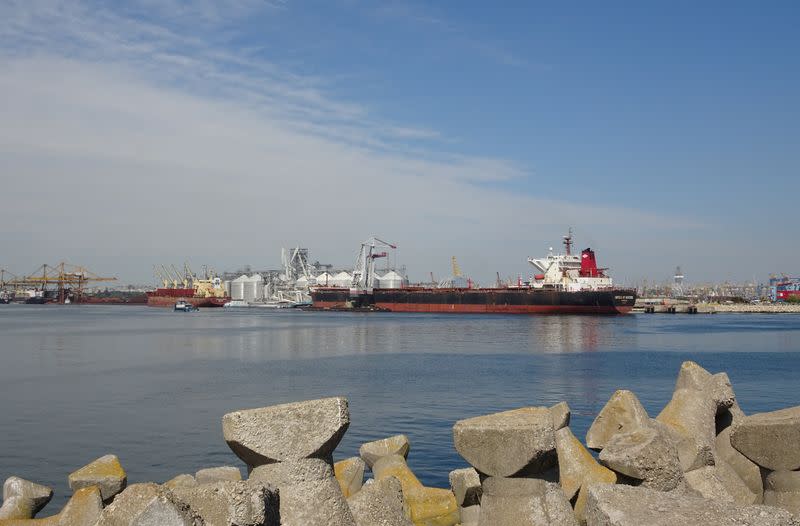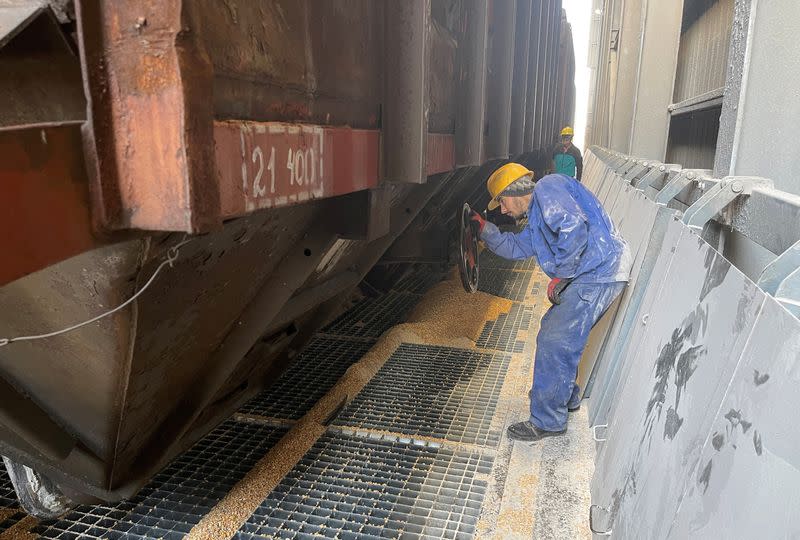Exclusive-Romania mulling measures to protect farmers at Constanta port, source says
BUCHAREST (Reuters) - Romanian officials are considering measures to give local farmers priority access to the Black Sea port of Constanta during the harvest season, an agriculture ministry source said, which could restrict the flow of Ukrainian grain.
Ukraine, one of the world's leading grain and oilseed exporters, saw its Black Sea ports blocked after Russia's February 2022 invasion and found alternative shipping routes through neighbouring European Union states.
Even after a deal brokered by the United Nations and Turkey gave Ukraine limited access to three of its Black Sea ports, Romania's Constanta has become its biggest alternative shipping route, having handled about a third of Ukrainian grain exports since the Russian invasion.
But Constanta would struggle to accommodate a surge in Romanian and Ukrainian crops once the harvest starts in a few weeks.
"Romania's farm ministry will propose in talks with Brussels and Kyiv an optimisation of commercial grain flows to Constanta port to protect local farmers for the duration of the harvest," a ministry source told Reuters.
The source did not elaborate on the measures, but added that better clarity on expected volumes could help organise flows.
The harvest season begins around July, when Ukraine's Black Sea grain corridor could collapse, and it typically runs until October.
Romania is one of five eastern European Union countries that saw an influx of Ukrainian grain since Russia's invasion, leading the EU to approve temporary trade restrictions and a support package.
At its peak, Constanta port handled roughly 25 million tones of grain exports a year.
Romania is one of the EU's biggest grain producers. Agritel estimates its wheat harvest at 8.76 million tonnes, while grain trade association Coceral sees it at 9.57 million tonnes and Romanian consultancy AGRIColumn at 10.5 million tonnes.
Ukraine is a major global grain grower and exporter, but this year's output is expected to be reduced because of Russia's invasion to around 45 million tonnes of grain from 53 million in 2022. By comparison, Romanian consultancy AGRIColumn expects Romania will have up to 21 million tonnes of grains and oilseeds available to export in the 2023/2024 season.
(Reporting by Luiza Ilie; Editing by Louise Heavens)



